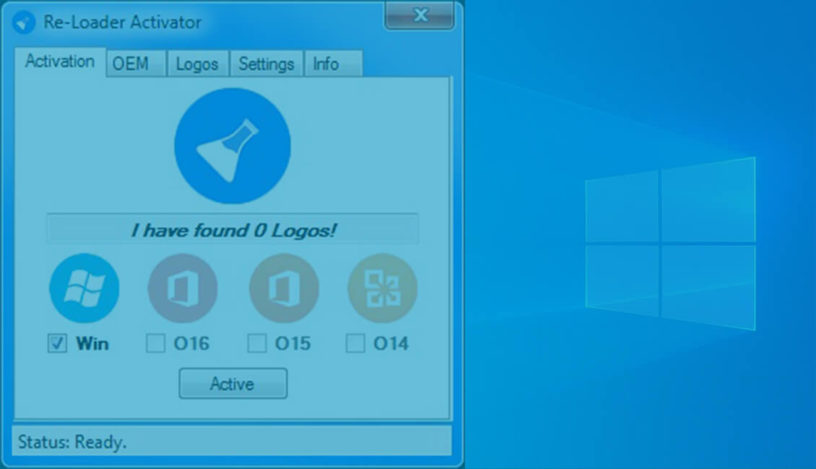Re Loader Activator 3.0 Beta 2 ( Windows Activator) by Re-Loader Activator 3.0 Beta 2 (Windows Activator) Publication date 2016-09-04 Usage Public Domain Mark 1.0.
- Re-loader Activator 3.0 Beta 3. Start DownloadRe-loader Activator 3.0 Beta 3 adalah sebuah activator windows terbaru yang dapat anda gunakan untuk mengaktifkan semua jenis windows yang ada saat ini. Sekarang sudah jarang sekai activator windows terbaru yang muncul, oleh karena itu anda yang menggunakan windows 10 ataupun windows 8.1 terkadang.
- Re-loader Activator 1.4 Rc 2. This is application the loader activation all versions of Windows and Office 2010, Office 2013, Office 2016!
Definition

Important
Some information relates to prerelease product that may be substantially modified before it’s released. Microsoft makes no warranties, express or implied, with respect to the information provided here.
Contains methods to create types of objects locally or remotely, or obtain references to existing remote objects. This class cannot be inherited.
Re-loader Activator 1.4 Rc 2 0

- Implements
Examples
The following example shows how to use the Activator class to dynamically construct objects at run time.
Remarks
The CreateInstance method creates an instance of a type defined in an assembly by invoking the constructor that best matches the specified arguments. If no arguments are specified, the constructor that takes no parameters, that is, the parameterless constructor, is invoked.
You must have sufficient permission to search for and call a constructor; otherwise, an exception is thrown. By default, only public constructors are considered during the search for a constructor. If no constructor or parameterless constructor can be found, an exception is thrown.
A binder parameter specifies an object that searches an assembly for a suitable constructor. You can specify your own binder and search criteria. If no binder is specified, a default binder is used. For more information, see the System.Reflection.Binder and System.Reflection.BindingFlags classes.

An evidence parameter affects the security policy and permissions for the constructor. For more information, see the System.Security.Policy.Evidence class.
An instance of a type can be created at a local or remote site. If the type is created remotely, an activation attribute parameter specifies the URI of the remote site. The call to create the instance might pass through intermediary sites before it reaches the remote site. Other activation attributes can modify the environment, or context, in which the call operates at the remote and intermediary sites.
If the instance is created locally, a reference to that object is returned. If the instance is created remotely, a reference to a proxy is returned. The remote object is manipulated through the proxy as if it were a local object.
The GetObject method creates a proxy to a currently running remote object, server-activated well-known object, or XML Web service. You can specify the connection medium, that is, the channel. For more information, see the System.Runtime.Remoting.Channels.ChannelServices class.
Assemblies contain type definitions. The CreateInstance method creates an instance of a type from a currently running assembly. The CreateInstanceFrom method creates an instance from a file that contains an assembly. The CreateComInstanceFrom method creates an instance of a COM object from a file that contains an assembly.
Methods
Re-loader Activator 1.4 Rc 250
| CreateComInstanceFrom(String, String) | Creates an instance of the COM object whose name is specified, using the named assembly file and the parameterless constructor. |
| CreateComInstanceFrom(String, String, Byte[], AssemblyHashAlgorithm) | Creates an instance of the COM object whose name is specified, using the named assembly file and the parameterless constructor. |
| CreateInstance(ActivationContext) | Creates an instance of the type designated by the specified ActivationContext object. |
| CreateInstance(ActivationContext, String[]) | Creates an instance of the type that is designated by the specified ActivationContext object and activated with the specified custom activation data. |
| CreateInstance(AppDomain, String, String) | Creates an instance of the type whose name is specified in the specified remote domain, using the named assembly and parameterless constructor. |
| CreateInstance(AppDomain, String, String, Boolean, BindingFlags, Binder, Object[], CultureInfo, Object[]) | Creates an instance of the type whose name is specified in the specified remote domain, using the named assembly and the constructor that best matches the specified parameters. |
| CreateInstance(AppDomain, String, String, Boolean, BindingFlags, Binder, Object[], CultureInfo, Object[], Evidence) | Obsolete. Creates an instance of the type whose name is specified in the specified remote domain, using the named assembly and the constructor that best matches the specified parameters. |
| CreateInstance(String, String) | Creates an instance of the type whose name is specified, using the named assembly and parameterless constructor. |
| CreateInstance(String, String, Boolean, BindingFlags, Binder, Object[], CultureInfo, Object[]) | Creates an instance of the type whose name is specified, using the named assembly and the constructor that best matches the specified parameters. |
| CreateInstance(String, String, Boolean, BindingFlags, Binder, Object[], CultureInfo, Object[], Evidence) | Creates an instance of the type whose name is specified, using the named assembly and the constructor that best matches the specified parameters. |
| CreateInstance(String, String, Object[]) | Creates an instance of the type whose name is specified, using the named assembly and parameterless constructor. |
| CreateInstance(Type) | Creates an instance of the specified type using that type's parameterless constructor. |
| CreateInstance(Type, BindingFlags, Binder, Object[], CultureInfo) | Creates an instance of the specified type using the constructor that best matches the specified parameters. |
| CreateInstance(Type, BindingFlags, Binder, Object[], CultureInfo, Object[]) | Creates an instance of the specified type using the constructor that best matches the specified parameters. |
| CreateInstance(Type, Boolean) | Creates an instance of the specified type using that type's parameterless constructor. |
| CreateInstance(Type, Object[]) | Creates an instance of the specified type using the constructor that best matches the specified parameters. |
| CreateInstance(Type, Object[], Object[]) | Creates an instance of the specified type using the constructor that best matches the specified parameters. |
| CreateInstance<T>() | Creates an instance of the type designated by the specified generic type parameter, using the parameterless constructor. |
| CreateInstanceFrom(AppDomain, String, String) | Creates an instance of the type whose name is specified in the specified remote domain, using the named assembly file and parameterless constructor. |
| CreateInstanceFrom(AppDomain, String, String, Boolean, BindingFlags, Binder, Object[], CultureInfo, Object[]) | Creates an instance of the type whose name is specified in the specified remote domain, using the named assembly file and the constructor that best matches the specified parameters. |
| CreateInstanceFrom(AppDomain, String, String, Boolean, BindingFlags, Binder, Object[], CultureInfo, Object[], Evidence) | Obsolete. Creates an instance of the type whose name is specified in the specified remote domain, using the named assembly file and the constructor that best matches the specified parameters. |
| CreateInstanceFrom(String, String) | Creates an instance of the type whose name is specified, using the named assembly file and parameterless constructor. |
| CreateInstanceFrom(String, String, Boolean, BindingFlags, Binder, Object[], CultureInfo, Object[]) | Creates an instance of the type whose name is specified, using the named assembly file and the constructor that best matches the specified parameters. |
| CreateInstanceFrom(String, String, Boolean, BindingFlags, Binder, Object[], CultureInfo, Object[], Evidence) | Creates an instance of the type whose name is specified, using the named assembly file and the constructor that best matches the specified parameters. |
| CreateInstanceFrom(String, String, Object[]) | Creates an instance of the type whose name is specified, using the named assembly file and parameterless constructor. |
| GetObject(Type, String) | Creates a proxy for the well-known object indicated by the specified type and URL. |
| GetObject(Type, String, Object) | Creates a proxy for the well-known object indicated by the specified type, URL, and channel data. |
Explicit Interface Implementations

| _Activator.GetIDsOfNames(Guid, IntPtr, UInt32, UInt32, IntPtr) | Maps a set of names to a corresponding set of dispatch identifiers. |
| _Activator.GetTypeInfo(UInt32, UInt32, IntPtr) | Retrieves the type information for an object, which can then be used to get the type information for an interface. |
| _Activator.GetTypeInfoCount(UInt32) | Retrieves the number of type information interfaces that an object provides (either 0 or 1). |
| _Activator.Invoke(UInt32, Guid, UInt32, Int16, IntPtr, IntPtr, IntPtr, IntPtr) | Provides access to properties and methods exposed by an object. |